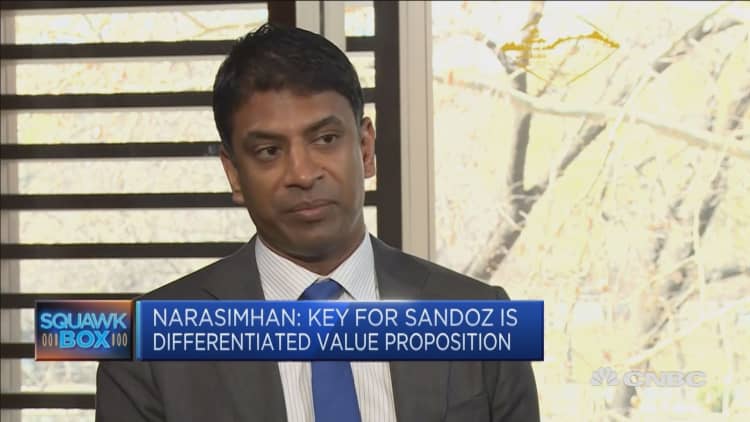
Swiss pharmaceuticals company Novartis will move toward making a decision on the fate of Alcon — its eye care business — in the first half of 2019, its chief executive officer reiterated on Sunday.
"With Alcon ... we look forward to taking a potential action, moving toward a potential decision in the first half of 2019. And that's still the timeline that we will maintain and no change on that," Vasant Narasimhan, chief executive officer of Novartis, told CNBC at the China Development Forum.
The Swiss drugmaker had indicated last year that it would need more time before making a decision on spinning off Alcon, which had been ailing but saw a recovery in sales last year.
Former Novartis CEO Joe Jimenez had said during a conference call in October that a spin-off of Alcon had to be from a "position of strength" and that the near-term focus was on sales and core operating income growth.
Despite the eye care division returning to sales growth in 2017, Narasimhan maintained that holding off a decision until 2019 would be appropriate.
"We want to continue to see both sales growth and profitability improve. But we still think it would be the right timeline to look towards that first half of '19 for any potential action on Alcon," Narasimhan said.
Beyond that plan, Narasimhan said his company had "no immediate plans to really change" its approach to its generics division, Sandoz. Despite the generics market coming under pressure, Narasimhan said the company still saw "great strength and growth" in biosimilars and would maintain its focus in the sector.
"We continue to evaluate all options, particularly in the U.S. business that's been under pressure, but we haven't made any decisions," Narasimhan said.
Biosimilars are similar to generic drugs in the way that both are versions of brand name drugs that could offer less expensive treatment. However, biosimilars are not generics due to several differences regarding the manufacturing of the product, as outlined by the U.S. Food and Drug Administration.


